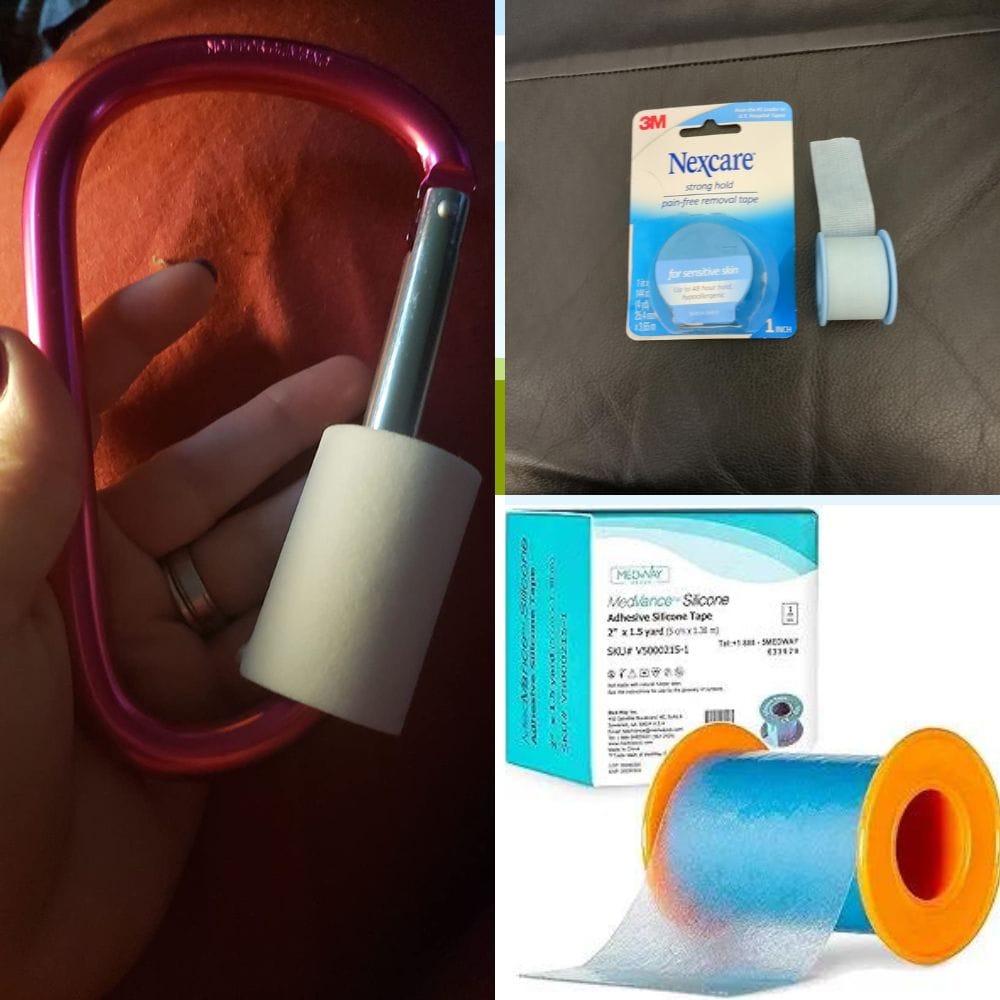Key Takeaways:
- Mouth taping can potentially reduce snoring by promoting nasal breathing.
- Proper usage and understanding of mouth tape are crucial for safety and effectiveness.
- Consult a healthcare professional before starting any new snoring remedies.
Understanding Snoring: Causes and Implications
Snoring is a common issue that affects millions worldwide, often disrupting sleep for both the snorer and their partner. It occurs when airflow through the mouth and nose is partially obstructed during sleep, causing the tissues in the throat to vibrate. Factors such as obesity, alcohol consumption, and nasal congestion can exacerbate this condition. While snoring might seem harmless, it can sometimes indicate underlying health issues like sleep apnea, which requires medical attention.
The implications of snoring extend beyond mere noise. Chronic snoring can lead to fragmented sleep, resulting in daytime fatigue, irritability, and decreased productivity. Moreover, it can strain relationships, as partners may suffer from sleep deprivation. Understanding the root causes of snoring is essential for finding effective solutions and improving overall sleep quality.
The Concept of Mouth Taping

Mouth taping is a simple technique that involves placing a strip of tape over the lips to encourage nasal breathing during sleep. The idea is that by keeping the mouth closed, airflow is directed through the nose, potentially reducing snoring. This method has gained popularity as a non-invasive and cost-effective approach to managing snoring.
Proponents of mouth taping argue that it can help train the body to breathe through the nose, which is considered more efficient and beneficial for overall health. Nasal breathing filters and humidifies the air, promoting better oxygen exchange and reducing the risk of respiratory infections. However, it's important to approach mouth taping with caution and ensure it's done safely to avoid any potential risks.
How Mouth Taping Works
The mechanics behind mouth taping are relatively straightforward. By sealing the lips, mouth tape prevents the jaw from dropping open during sleep, which is a common cause of snoring. This encourages the tongue to rest against the roof of the mouth, maintaining an open airway and reducing the likelihood of vibrations that cause snoring sounds.
It's crucial to use the right type of tape designed specifically for mouth taping. Medical-grade tapes are recommended as they are gentle on the skin and easy to remove. Additionally, individuals should ensure they can breathe comfortably through their nose before attempting mouth taping. If nasal congestion is present, it may be necessary to address this issue first to ensure effective results.
Benefits of Nasal Breathing

Nasal breathing offers several advantages over mouth breathing, particularly during sleep. The nose acts as a natural filter, trapping dust, allergens, and other particles, preventing them from entering the lungs. This filtration process can reduce the risk of respiratory infections and improve overall lung health. Moreover, nasal breathing helps regulate airflow, ensuring a steady supply of oxygen to the body.
Another benefit of nasal breathing is its impact on sleep quality. By promoting a more stable and consistent breathing pattern, nasal breathing can enhance the depth and duration of sleep cycles. This can lead to improved cognitive function, mood, and overall well-being. Mouth taping, by encouraging nasal breathing, may contribute to these positive outcomes, making it a potentially valuable tool for those struggling with snoring.
Potential Risks and Considerations
While mouth taping can be beneficial for some, it's not suitable for everyone. Individuals with certain medical conditions, such as severe nasal congestion, sleep apnea, or respiratory issues, should avoid mouth taping unless advised by a healthcare professional. Additionally, those with sensitive skin may experience irritation from the adhesive, so it's important to choose a hypoallergenic tape.
Safety is paramount when considering mouth taping. It's essential to ensure that the tape is applied correctly and that the individual can breathe comfortably through their nose. If any discomfort or difficulty breathing occurs, the tape should be removed immediately. Consulting with a healthcare provider before starting mouth taping can help identify any potential risks and ensure it's a safe option.
Choosing the Right Mouth Tape

Selecting the appropriate mouth tape is crucial for both comfort and effectiveness. Medical-grade tapes, such as those used for wound care, are often recommended due to their gentle adhesive properties. These tapes are designed to be skin-friendly and easy to remove, minimizing the risk of irritation or discomfort.
When choosing a mouth tape, consider factors such as adhesive strength, breathability, and ease of removal. It's also advisable to test the tape on a small area of skin before applying it to the lips to ensure there are no adverse reactions. By selecting the right tape, individuals can enhance their experience with mouth taping and potentially achieve better results in reducing snoring.
Practical Tips for Effective Mouth Taping
For those considering mouth taping, a few practical tips can help ensure a positive experience. First, it's important to clean and dry the lips thoroughly before applying the tape to ensure proper adhesion. Applying a small strip of tape horizontally across the lips is usually sufficient to keep the mouth closed without causing discomfort.
Starting with a trial period can help individuals adjust to the sensation of mouth taping. It's normal to feel a bit strange at first, but most people adapt quickly. If any discomfort or difficulty breathing occurs, the tape should be removed immediately. Gradually increasing the duration of use can help the body acclimate to nasal breathing during sleep.
Case Studies: Success Stories with Mouth Taping

Several individuals have reported positive outcomes with mouth taping, citing reduced snoring and improved sleep quality. For instance, John, a 45-year-old engineer, struggled with chronic snoring that affected his relationship with his partner. After trying various remedies, he decided to give mouth taping a shot. Within a few weeks, he noticed a significant reduction in his snoring, and both he and his partner enjoyed more restful nights.
Similarly, Sarah, a 32-year-old teacher, experienced frequent nasal congestion that contributed to her snoring. After addressing her nasal issues and incorporating mouth taping into her routine, she found that her snoring decreased, and she woke up feeling more refreshed. These success stories highlight the potential benefits of mouth taping for those seeking a simple and effective solution to snoring.
Alternatives to Mouth Taping
While mouth taping can be effective for some, it's not the only solution for snoring. Other options include lifestyle changes, such as losing weight, avoiding alcohol before bed, and sleeping on one's side. These adjustments can help reduce snoring by addressing some of the underlying causes.
For those with more severe snoring or sleep apnea, medical interventions may be necessary. Continuous positive airway pressure (CPAP) machines, oral appliances, and surgical procedures are available for individuals who require more intensive treatment. Consulting with a healthcare professional can help determine the most appropriate approach based on individual needs and circumstances.
Consulting a Healthcare Professional

Before embarking on any new snoring remedy, including mouth taping, it's wise to consult with a healthcare professional. They can provide valuable insights into the potential causes of snoring and recommend appropriate solutions. A thorough evaluation can help identify any underlying health issues that may need to be addressed.
Healthcare professionals can also offer guidance on the safe and effective use of mouth taping. They can assess whether it's a suitable option based on individual health conditions and provide recommendations for alternative treatments if necessary. By seeking professional advice, individuals can make informed decisions about managing their snoring and improving their sleep quality.


Is mouth taping safe for everyone?
Mouth taping is not suitable for everyone, especially those with nasal congestion, sleep apnea, or respiratory issues. It's important to consult a healthcare professional before trying mouth taping to ensure it's safe for your specific situation.
Can mouth taping completely stop snoring?
While mouth taping can reduce snoring for some individuals, it may not completely eliminate it. The effectiveness of mouth taping varies depending on the underlying causes of snoring. It's often most effective when combined with other lifestyle changes or treatments.
What type of tape should I use for mouth taping?
It's recommended to use medical-grade tape designed for skin application, such as those used for wound care. These tapes are gentle on the skin and easy to remove, reducing the risk of irritation or discomfort.

Mouth taping is a promising technique for reducing snoring by promoting nasal breathing. While it can be effective for some, it's important to approach it with caution and consult a healthcare professional before starting. Understanding the benefits and potential risks of mouth taping can help individuals make informed decisions about their snoring management strategies.











